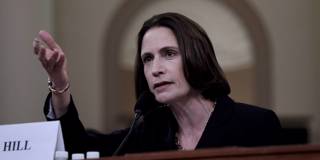To commemorate its founding 25 years ago PS is republishing a selection of commentaries written since 1994. In the following commentary, Fiona Hill explained why Russian President Vladimir Putin’s stated objective of ensuring Russia’s survival would put him on a collision course with the West.
WASHINGTON, DC – Vladimir Putin’s improbable rise to the pinnacle of Russian power in 1999-2000 was partly the result of an elite consensus about the importance of restoring order to the Russian state after a decade of domestic crisis and international humiliation. His rise was improbable, because Putin is no career politician, but someone whose worldview was shaped by his experience in the KGB, an institution that operated beyond public scrutiny and without fear of legal or other constraints.

WASHINGTON, DC – Vladimir Putin’s improbable rise to the pinnacle of Russian power in 1999-2000 was partly the result of an elite consensus about the importance of restoring order to the Russian state after a decade of domestic crisis and international humiliation. His rise was improbable, because Putin is no career politician, but someone whose worldview was shaped by his experience in the KGB, an institution that operated beyond public scrutiny and without fear of legal or other constraints.